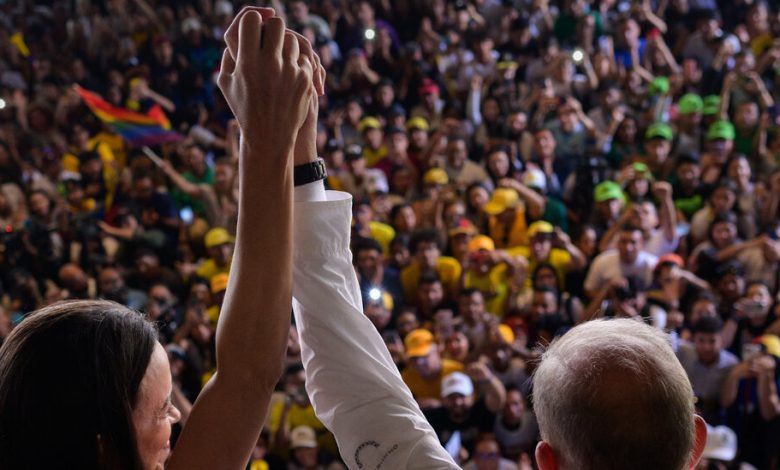This Is Venezuela’s Moment. It Needs the World’s Help.

Venezuela could be on the cusp of a historic return to democracy, a shift that would reshape Latin America and pave the way for millions of Venezuelans who have fled repression and economic collapse to return home.
But it can’t get there alone.
With less than two weeks to go before the July 28 national election, the country’s fractured opposition has united behind a single presidential candidate, Edmundo González, who has been leading the polls by over 20 points. Abandoning its longtime boycott of the vote, the opposition has instead conducted an energetic and organized campaign that, despite increased attempts by the government to instill fear among the electorate, has succeeded in capturing Venezuelans’ imaginations. Two-thirds of registered voters are planning to cast their ballots this month, according to a recent poll, compared with the 46 percent of voters who turned out in the last presidential elections, in 2018.
But the same roadblock stands in the way of a free and fair election that has been there for the past decade: President Nicolás Maduro. The nation’s democracy has withered on his watch, along with its economy. There is a very real possibility that if faced with electoral defeat, he and his cronies will rig the results — not just to cling to power but also to avoid jail. The president, members of his administration and the military elite and other allies face criminal charges by the U.S. Justice Department, U.S. State Department bounties, individual sanctions and an International Criminal Court investigation into crimes against humanity allegedly committed by the regime.
Something can be done. The United States can support the Venezuelan people in their fight for democracy by creating a legal off-ramp for Mr. Maduro and his allies so that if the president loses, he will agree to give up power. It is an opportunity that won’t come around again anytime soon, and the window to seize it is rapidly closing. Without it, the likely outcome of this month’s vote will be more repression, more forced migration and more suffering.
What would a negotiated exit for Mr. Maduro look like? Washington could make a strong and credible offer that it will not prosecute him or his circle if they recognize an electoral defeat and leave office. The recent revival of talks between the United States and Venezuela is the perfect opportunity to present such an offer. To make it credible, it should also be communicated directly to other Latin American governments and announced publicly. If Mr. Maduro accepted the offer, the transition to democracy could happen swiftly. If he rejected it, the offer could still exert significant pressure on him, as members of his coalition might push him to accept it, recognizing the benefits they would gain from the proposed terms.
Why should Washington consider such a move? A return to democracy in Venezuela would be a major foreign policy victory for the Biden administration at a time when the embattled American president could use a win. It could help limit the surge of migration to the U.S. southern border — some 40 percent of polled Venezuelans said they were thinking about leaving the country if Mr. Maduro stayed in power — and potentially reduce the influence of Russia and China in a country that possesses the largest oil reserves in the world.
